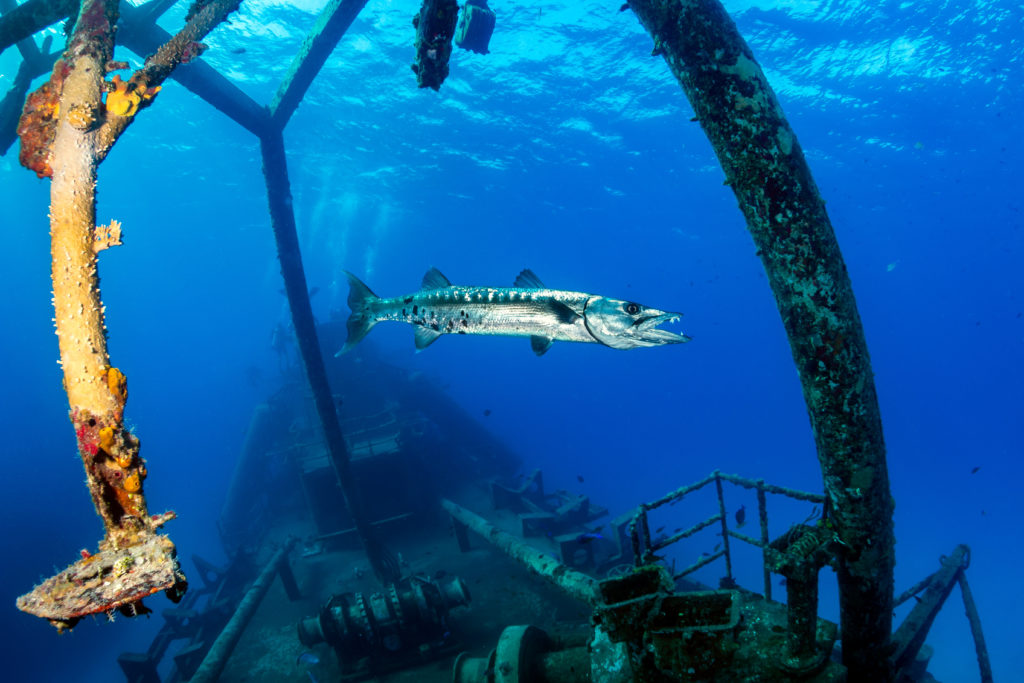Those unfamiliar with the species often base barracuda hysteria on old myths and fisherman’s tales. As divers know, the great barracuda, Sphyraena barracuda, is an easily recognizable fish. It has a long, streamlined body with rows of 18 to 23 dark bars, as well as a distinctive jawline of razor-sharp teeth. This menacing look historically caused fear in humans when, in fact, the barracuda is harmless to people. Here we’ll address some of the common barracuda myths so that the next time your non-diving friends ask, you’ve got the facts.
Myth No. 1: Barracuda are dangerous to people.
Although barracuda are quite curious, there have been only 25 reported attacks in the last century. The majority of documented incidents were severe lacerations. Scientists think that people provoked the barracuda in these cases, triggering its defenses. Most of these attacks also involved spearfishing divers, which caused a fight between the barracuda and the spear fisherman for the catch.
Myth No.2: A barracuda will attack any shiny object that crosses its path.
This persistent myth has frightened people away from diving because of the abundant stainless steel in our equipment. Thankfully for the diving community, the only recorded barracuda attack on a human due to a shiny object occurred in murky waters. The incident was most likely an honest mistake on the part of the barracuda, which thought the object was a fish. Barracuda typically hunt grouper, grunts, jacks, small tuna, snapper and anchovies, as well as other silver, shiny fish. But that doesn’t mean they will attack anything shiny.
Myth No. 3: Barracuda is poisonous if eaten.
Although it’s not recommended to eat, barracuda is definitely not a poisonous fish. As with many other tropical reef fish, you risk ciguatera poisoning if you eat it. Ciguatera is caused by certain plankton that produce the poison, which are later consumed by the larger fish. Unfortunately with the volume of pollution that humans add to the ocean, the concentration of poisons has escalated through the food chain. This means that these larger fish contain higher percentages of these toxins.
Rather than being intimidated by these curious, beautiful fish, divers have an opportunity to dispel common barracuda myths. In fact, humans are far more dangerous to them than they are to us.


